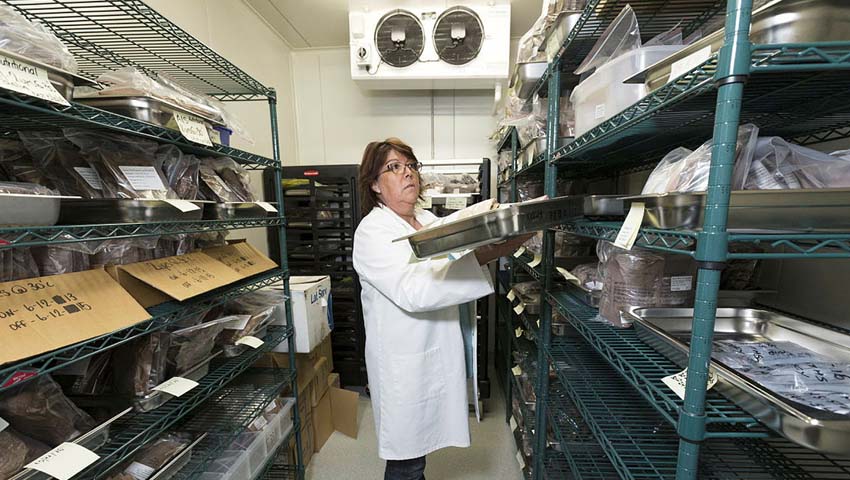Defence Industry Minister Melissa Price has announced a partnership with Tasmanian-based Forager Foods, which specialises in the production of freeze-dried foods to support growth in food innovation and production.
To continue reading the rest of this article, please log in.
Create free account to get unlimited news articles and more!
Forager Foods has been given access to a Defence facility in Scottsdale, north-east of Launceston, to develop options that would see Defence skills and knowledge for freeze-dried meal production shared with industry.
Minister for Defence Industry Melissa Price said the partnership demonstrated the versatility of Australian defence industry and its ability to continually improve and grow local capabilities.
“The food production can be for the commercial market, as well as potentially offering products that meet Defence specifications through its combat rations prime vendor Prepack Limited,” Minister Price said.
Defence has continued to invest in its Scottsdale facility, with the acquisition of a Microwave Assisted Thermal Sterilisation (MATS) machine for research into shelf-stable, high-quality, ready-to-eat meals.
The Scottsdale facility was originally announced by then minister for defence Marise Payne in March 2016, as part of a $7.2 million investment to support the creation of a MATS research and development plant within the Defence Food and Nutrition Centre.
Federal member for Bass, Bridget Archer, said it was understood that Forager Foods would employ a small number of local production workers.
“This partnership is a great example of collaboration between government and private sector. It will likely increase Australian domestic capability to produce freeze-dried ration components while simultaneously supporting the growth and innovation of Tasmanian industry,” Archer said.
The MATS machine acquisition was made possible through partnerships with the University of Tasmania and CSIRO under the Centre for Food Innovation partnership arrangement.
DST Group supports the Australian Defence Force (ADF) and the Capability Acquisition and Sustainment Group in the science and technology areas of food and nutrition, and in specialised food production.
DST Group are the prime source of expertise for the ADF on meeting the nutritional needs of serving personnel. DST and industry partners like Forager Foods make an important contribution to both the ADF’s approach to fresh feeding and to the selection and testing of elements of the Combat Ration Pack.
DST’s Land Division approaches innovation in this area through strong partnerships with leading research organisations in Australia and overseas, and is a core member of the recently established Centre for Food Innovation.
The University of Tasmania launched its new Centre for Food Innovation (CFI) and at the same time announced a ground-breaking science collaboration with the Commonwealth Government’s Defence Science and Technology Organisation (DSTO) and the Commonwealth Scientific and Industrial Research Organisation (CSIRO).
CFI is a partnership that aims to help diversify Tasmania’s economic base by growing exports of high-quality, nutritious, value-added food products. The CFI, headed by its newly appointed foundation director, Professor Roger Stanley, will bring together the expertise of nutritionists and food technologists from all three partners to undertake research of direct relevance to Tasmania and Defence needs.
Research projects driven by industry needs will include:
- Increasing export market access for fresh produce by extending shelf life using innovative processing and packaging technologies;
- Developing key technologies to make and test specialised foods that could find dual use in Defence and civilian markets such as sports performance nutrition, aged care feeding and shelf-stable foods for emergency response;
- Characterising and communicating the benefits of regional foods and local heritage cultivars to promote appreciation of our unique environment and products to differentiate and brand Tasmanian foods.
Based in Launceston, CFI will work with many established UTAS institutions and initiatives such as the Tasmanian Institute of Agriculture, Australian Maritime College logistics, the School of Human Life Sciences and the Sensing Tasmania (Sense-T).
The CFI is already consulting industry to establish regional networks and facilities associated with industry where local producers can work collaboratively and with researchers to test their ideas.
In a positive move for north-east Tasmania, the CFI will enable the DSTO facility in Scottsdale to grow its research capabilities in food science and technology, provide access to a broader pool of experts and foster an enhanced science environment to extend the research base for new and innovative food for Defence.

 Login
Login







